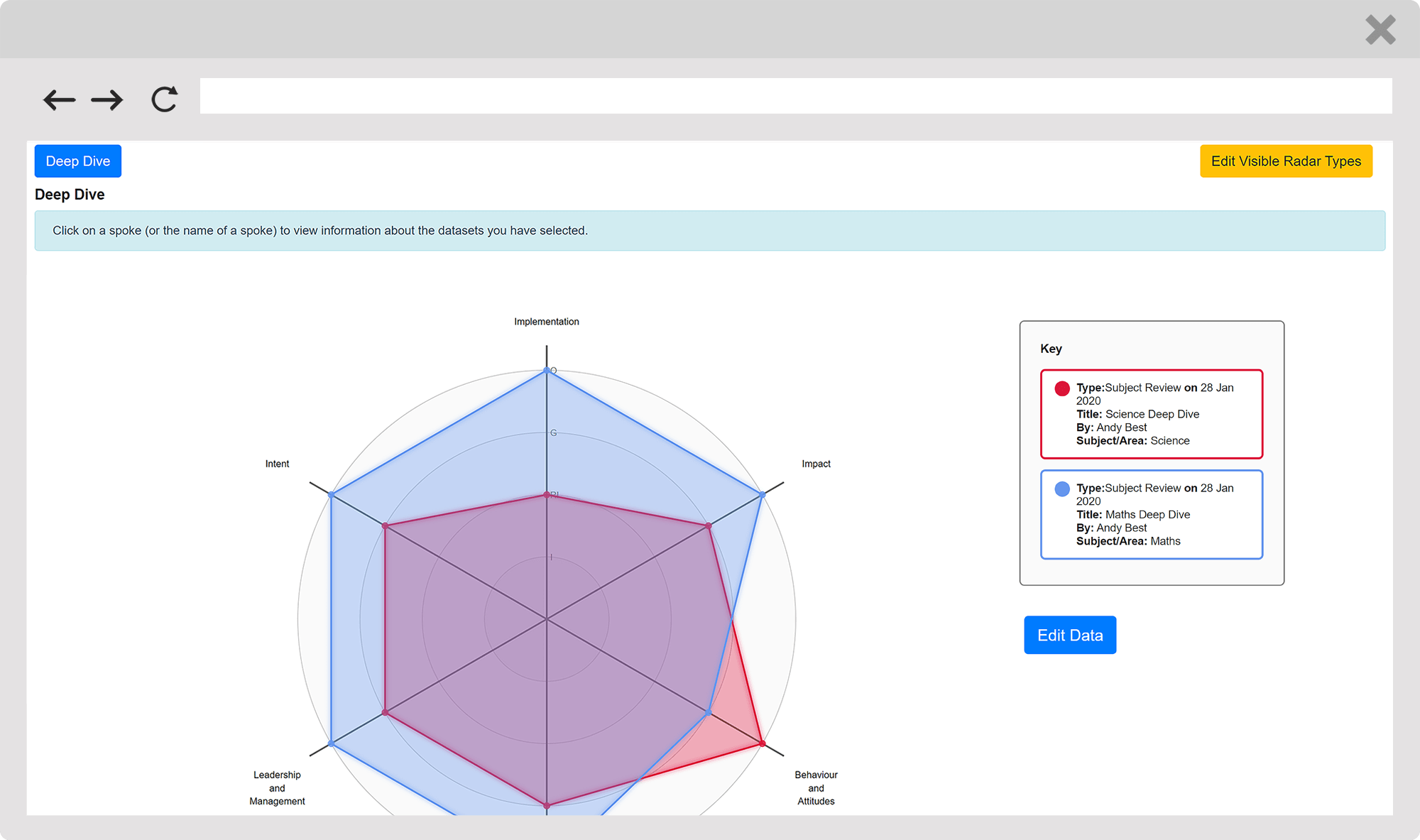Coaching for staff development has become a key concept in many schools. When managed correctly…
The Thinking Behind Our Subject Development Tool Kit
“School Improvement with a Curriculum focus for the 2020s”
A Subject Development review is essentially an in-depth curriculum review, which triangulates evidence from a variety of sources and is thus broad based, valid and reliable. It is not based on evaluating a single activity but about assessing the quality of education being delivered over time.
Ofsted have been the catalyst for this change in approach to monitoring and improving provision through their Subject Deep Dives. Adopting the ideas behind the Deep Dives, schools have started to adapt the approach to ensure it is seen as developmental for subject leaders, their teams and individual teachers.
Our tool kit makes the most of the Ofsted approach, structure and narratives but integrates the best practice currently found in schools. To that end the tool kit makes use of Ofsted Handbook descriptors and judgement grades when evaluating the current performance of a subject. However, all monitoring activities rely on focus areas such as Subject knowledge, Sequencing, Expectation, Lesson Structure, Quality of instruction, Teaching strategies, Questioning, Assessment of understanding, etc, and are assessed on a developmental RAG based system. This 2 step self-review approach means staff teams and individual teachers have clearly scaffolded development steps but that subject leaders are held to account for the development of their subject in much the same way as they would be on inspection.
|
EIF Evaluation Area |
Focus Area |
| Quality of Education – Intent (Curriculum and Planning) | Reflection of intent (aims) of subject Ambition Sequencing |
| Quality of Education – Implementation (Teaching and Assessment) | Subject knowledge Expectation Quality of instruction Articulation of learning Questioning Reflection and seeking support Numeracy Specialised and technical vocabulary Lesson structure Connection of knowledge Teaching strategies Assessment of understanding Reading |
| Quality of Education- Impact (Pupil Outcomes) | Profession Reading skills and strategies Mathematical knowledge and concepts Quality of pupils’ work |
| Behaviour and Attitudes | Routines, boundaries and learning conditions Resilience to challenges Safety |
| Personal Development | Equality of opportunity and diversity Cultural capital SMSC |
| Leadership and Management | Vision and values Professional learning High expectations and consistent practice Parental/carer engagement Workload and wellbeing |
The goals of the Subject Development review process are to improve the quality (and breadth) of education for pupils, identify and deliver professional development for staff and ensure well-being for all.
The key purpose of a Subject Development review is to determine if the curriculum intent and implementation are working effectively to ensure the best impact in terms results and wider development of students. The key players who can provide the information we need in each of these areas are:
- Intent – senior and subject leaders
- Implementation – teachers and teaching assistants
- Impact – pupils
The tool kit provides the necessary forms and prompts to gather evidence from each of these groups to track the curriculum from design through delivery to outcomes.
A number of Subject Development reviews need to be undertaken and the results scrutinised and compared by senior leaders for common strengths and issues to gain a view on the overall quality of education provided within a setting and where urgent school wide development is required.

Although Subject Development reviews focus primarily on the quality of education, they are also an opportunity to gather information about a school’s wider areas of activity, described by Ofsted as behaviour and attitudes, personal development and leadership and management. This is all part of a new approach to a school’s self-review process.
This methodology places a greater focus on the curriculum and school leaders, particularly subject leaders, and their ability to evaluate and analyse the results from a variety of activities and produce a succinct report and action plan to continue to support and develop the subject and the school’s staff.
Increasingly, schools are taking the view that the old approach of isolated monitoring exercises around individual members of staff (such as lesson observations and book trawls) are too abstract and do not consider the whole picture of a pupil’s education. Such activities may still have a place in formal capability processes but probably nowhere else. Many schools are moving away from target setting and observation-based performance management and towards a more developmental and rounded approach. This change in approach should also be used to improve workload concerns. It should appeal to unions whilst at the same time allowing school leaders to better manage and develop their staff.
Benefits of our Subject Development Tool Kit include:
- a rounded review of a subject area with robust and reliable evidence that identifies strengths and development areas for senior and subject leaders;
- an understandable structure that allows reporting on a subject for scrutiny at governance/MAT level;
- developmental feedback to individual staff members to inform their professional development;
- opportunities to understand the breadth of the subject experience pupils are receiving, their opinion of their experience of the subject and the impact the curriculum delivery is having on achievement;
- detailed information on other related key issues such as behaviour, attitudes and wider pupil development as well as workloads and the well-being of staff;
and finally
- a structure, approach and language that should ensure a school (particularly its subject leaders) are well prepared for the Ofsted deep dive inspection.
To discuss our Subject Development approach and also the impact of the pandemic on school monitoring and improvement please call us on 0800 788 0444.
